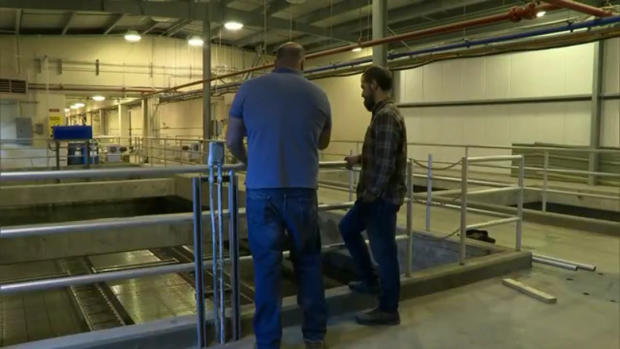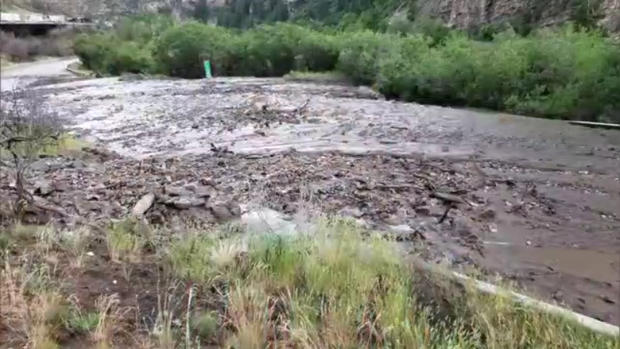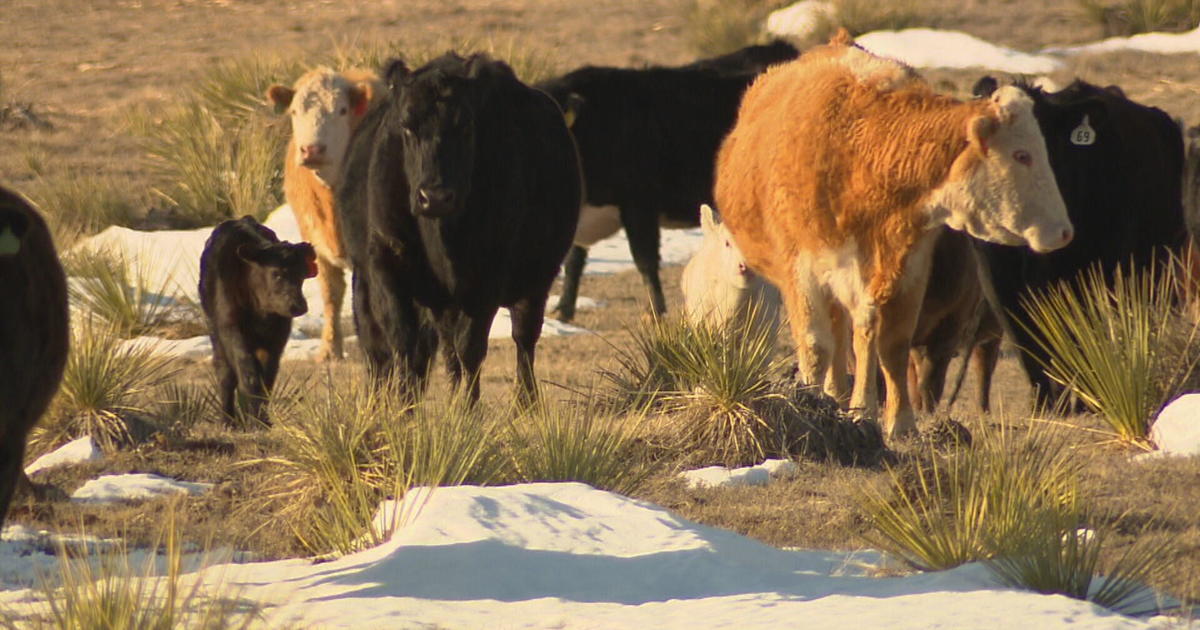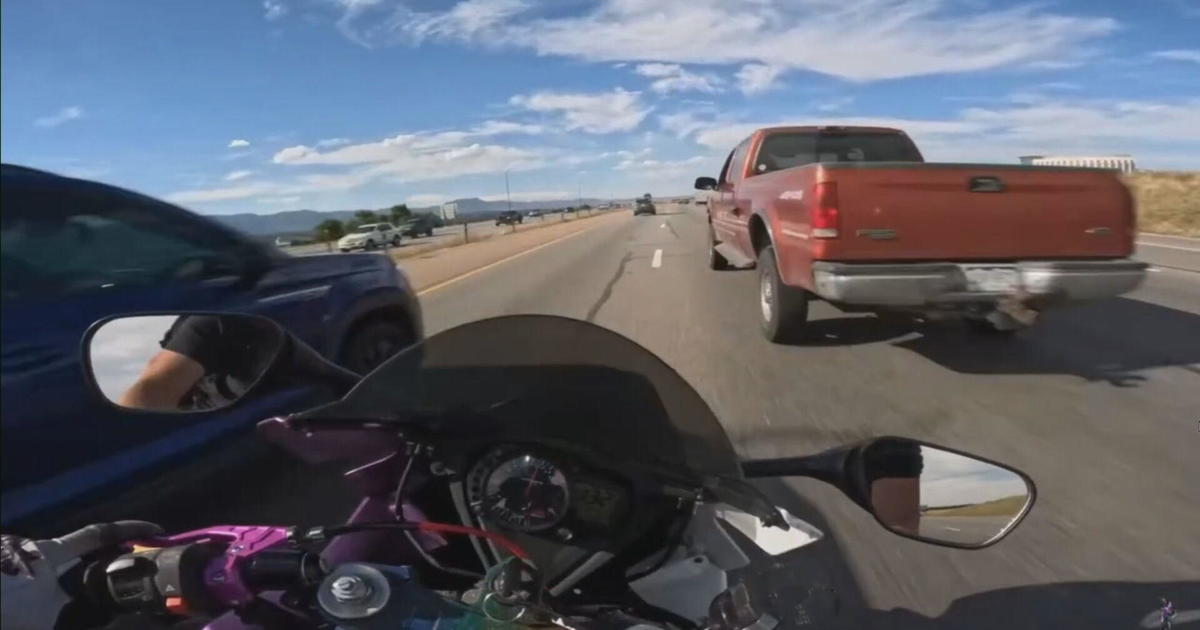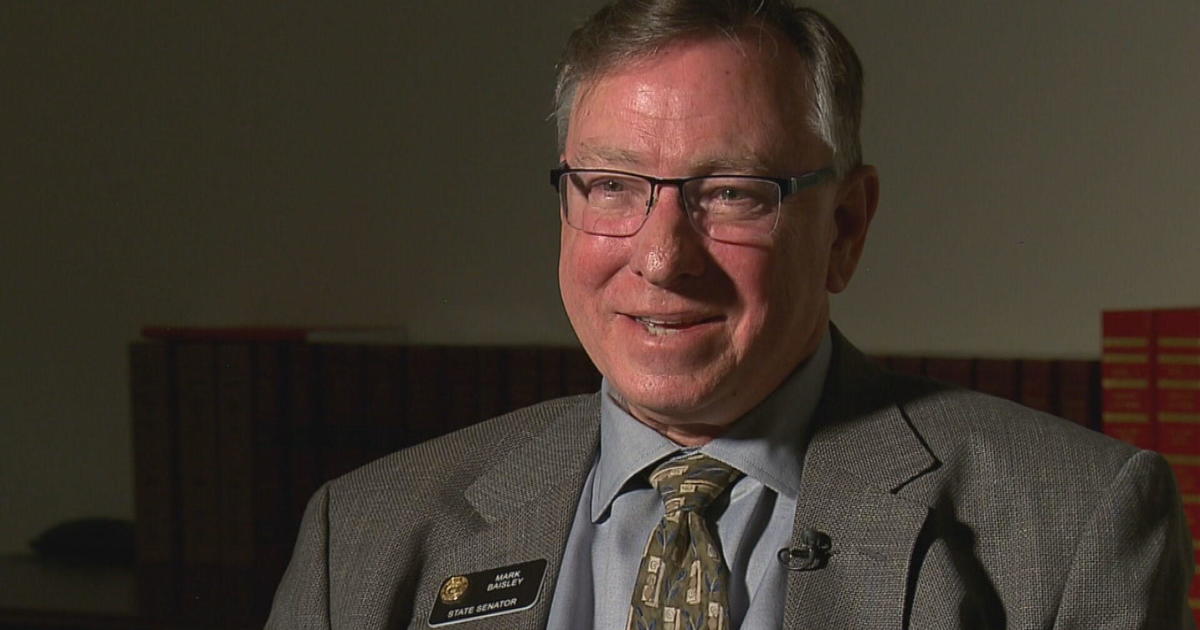'Soupy Mixture Of Blackness' From Mudslides Forces Glenwood Springs To Alter How Residents Get Water
GLENWOOD SPRINGS, Colo. (CBS4) - It looks like travelers can expect a mixed bag of Interstate 70 openings and closings as rain hits Glenwood Canyon this week. But there's some good news.
People who live in Glenwood Springs can go back to regular water restrictions already in place before the slides Tuesday morning, as the city says it is now drawing enough water from the Roaring Fork River to allow more water use.
City officials had asked people to suspend lawn watering altogether after the water it draws from the No Name drainage in Glenwood Canyon became fouled with mud, ash and debris.
"We knew last year when the Grizzly Creek Fire was hitting that it was hitting our watershed, that this is going to be a problem," said Glenwood Springs mayor Jonathan Godes.
The watershed is in the No Name drainage and city crews hiked up to see how things were going and used drones to have a look. They found five slides.
"I think that every time that it rains we're going to be shutting down the intake completely," said Godes.
That means drawing their water from the Roaring Fork River instead.
Over the past year, with state help and with a boost from a 36 percent increase in water rates, Glenwood Springs has increased its infrastructure, including adding bigger pumps to draw from the Roaring Fork. They can now draw 2.5 million gallons a day. That's not as much at the 4 million gallons Glenwood Springs was using on an average summer day before the Grizzly Creek Fire, but enough if the city keeps alternating day watering use restrictions in place.
In a way, the fire changed some views.
"It has changed our community. People are now much more willing to look at what infrastructure means. What it means to them," said Godes.
Right now, water from the draws in Glenwood Canyon is just unusable.
"It's mud, it's sticks, it's ash, branches, limbs. ... It looks like a soupy mixture of blackness."
A few miles up the Colorado River in the canyon at the Bair Ranch, owners Jim and Autumn Bair are getting used to the latest challenge.
"Last year was a roller coaster. Everybody had to deal with COVID and everything that went along with that," said Jim Bair. "Then we had the fire and that completely shut us down. ... This spring so far has been beautiful."
There have been no slides in the drainage where the ranch is located, but it has made them think anew about it. Their home is fairly low in the drainage.
"We've had the site survey done, we just haven't had the actual work start yet. So hopefully that will get done soon. It will feel a little more comfortable to have some mitigation done in the drainage here."
Cabins on their property are located on higher slopes they don't feel are in danger. When the canyon has been shut down to travel, sometimes movement has been a problem, but sometimes CDOT lets locals through to their homes if they don't have to go near slides.
"When the highway's completely shut down we try to just hang home, just not go anywhere. But if we are coming home and we get caught out, most of the time they've been really great and open up the road for us and just let us come home."
And then when they are home, it feels pretty good.
"It's great as long as we're stuck here at home and not out on the road like other people have been," said Autumn Bair.
